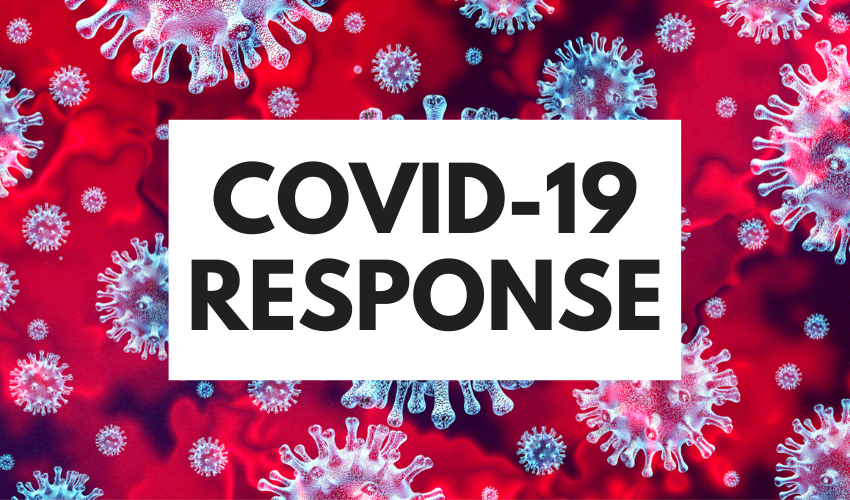Industry Coalition Sends Letter to U.S. Vice President Warning of Risk of Carbon Dioxide Shortage
April 7, 2020
Today, an industry coalition led by the Compressed Gas Association (CGA), and including representatives from multiple food and beverage groups, submitted a letter to U.S. Vice President Mike Pence expressing strong concern that the current coronavirus (COVID-19) pandemic creates a significant risk of a shortage in carbon dioxide (CO2). Such a shortage would significantly impact access to essential food and beverage supplies as well as other essential sectors of the U.S. economy.
CO2 is critical for the operations of food and beverage manufacturers that provide essential goods and services to Americans. It is used in the processing, packaging, preservation, and shipping of many foods. In addition, CO2 in different forms is used in various aspects of the healthcare industry and is also an important component in many municipal water treatment systems.
Signed by leaders from the Compressed Gas Association, the North American Meat Institute, the National Pork Producers Council, the National Turkey Federation, the National Cattlemen’s Beef Association, the Beer Institute, the Brewers Association, and the Renewable Fuels Association, the coalition letter urges immediate federal action to put manufacturing plants that support CO2 production back into service, especially those sites that are capture ready, i.e., those that have the ability to capture, liquefy, and store usable CO2.
If federal action is not swift, a slowdown in food and beverage manufacturing due to a shortage in CO2 will ultimately lead to shortages of needed goods.
The coalition letter is provided below in its entirety. The letter in PDF format may also be viewed here: CO2 Coalition Letter (FINAL_200407).
Industry Coalition Letter on Risk of CO2 Shortage
April 7, 2020
The Honorable Mike Pence
The Office of the Vice President of the United States
Eisenhower Executive Office Building
1650 Pennsylvania Avenue, NW
Washington, DC 20501
Dear Vice President Pence:
Representing thousands of American workers across all 50 states that ensure the reliability of our Nation’s food supply, we write to express our strong concern that the current coronavirus (COVID-19) pandemic creates a significant risk of a shortage in carbon dioxide (CO2) that would significantly impact access to essential food and beverage supplies and other essential sectors of the U.S. economy. We bring this to your attention and request the assistance of the federal government during this temporary emergency to prevent a substantial CO2 shortage before it creates any food and beverage shortages.
CO2 is critical for the operations of food and beverage manufacturers that provide essential goods and services to Americans. CO2 is used in the processing, packaging, preservation, and shipping of many foods. In addition, CO2 in different forms is used in various aspects of the healthcare industry and is also an important component in many municipal water treatment systems.
CO2 is produced primarily as a byproduct of industrial manufacturing, including the production of ethanol, ammonia (fertilizer manufacturing), hydrogen (H2)/refining processes, and natural wells. CO2 comes from these various sources that differ geographically due to proximity to the customer, access to viable shipping routes, and availability of trucks and drivers.
The significant economic impact of the COVID-19 outbreak in the U.S., as well as related global economic trends, has significantly affected overall demand and production of industrial manufacturing that leads to CO2 capture. Many industrial manufacturers have already idled their plants due to diminished demand leading to a decrease in CO2 access for industrial gas suppliers. Thus, certain industrial gas companies have been forced to ration available CO2 products amongst essential business users, including food and beverage manufacturing plants. Preliminary data show that production of CO2 has decreased by approximately 20%, and experts predict that CO2 production may be reduced by 50% by mid-April unless action is taken to stabilize existing sources of CO2, prevent production sources who are indicating they will shut down from doing so, and reopen those sources that have halted production thus far.
A shortage in CO2 would impact the U.S. availability of fresh food, preserved food and beverages, including beer production. The guidance[1] issued by the Department of Homeland Security (DHS) Cybersecurity and Infrastructure Security Agency (CISA) on March 28, 2020 deemed these industries as “essential critical infrastructure”: food manufacture, including food processing and livestock production, beverage production, renewable fuel development, and chemical and industrial gas supply chains. Without stable sources of CO2 across the nation, these food and beverage manufacturers will be unable to operate at capacity, leading to shortages for Americans of the important goods they depend on, especially during the COVID-19 crisis.
We request your immediate assistance on this issue. We believe that temporary, emergency federal assistance is necessary to prevent shortages in CO2 by providing federal incentives to industrial manufacturers to put manufacturing plants that result in CO2 production back into service, especially those sites that are capture-ready, i.e. that have the ability to capture, liquefy, and store usable CO2. If federal action is not swift, a slowdown in food and beverage manufacturing due to a shortage in CO2 will ultimately lead to shortages of needed goods.
Thank you in advance for your attention to this issue. Should you have any questions, please contact Richard Gottwald, President & CEO of the Compressed Gas Association, at 202-487-0288.
Sincerely,
Rich Gottwald, President & CEO
Compressed Gas Association, Inc.
cganet.com
Jim McGreevy, President & CEO
Beer Institute
www.beerinstitute.org
Robert D. Pease, President & CEO
Brewers Association
www.brewersassociation.org
Ethan Lane, VP of Government Affairs
National Cattlemen’s Beef Association
www.ncba.org
Neil Dierks, Chief Executive Officer
National Pork Producers Council
www.nppc.org
Joel Brandenberger, President
National Turkey Federation
www.eatturkey.com
Julie Anna Potts, President & CEO
North American Meat Institute
www.meatinstitute.org
Geoff Cooper, President & CEO
Renewable Fuels Association
www.ethanolrfa.org
CC:
The Honorable Dan Brouillette, Secretary of Energy, U.S. Department of Energy
The Honorable Chad Wolf, Secretary of Homeland Security (Acting), U.S. Department of Homeland Security
The Honorable Sonny Perdue III, Secretary of Agriculture, U.S. Department of Agriculture
The Honorable Stephen Hahn, MD, Commissioner, U.S. Food and Drug Administration
The Honorable Lawrence Kudlow, Director, National Economic Council
Peter Navarro, PhD, Assistant to the President for Trade and Manufacturing Policy, Office of Trade and Manufacturing Policy, National Economic Council, Executive Office of the President
[1] Cybersecurity and Infrastructure Security Agency. Guidance On The Essential Critical Infrastructure Workforce. March 28, 2020. https://www.cisa.gov/publication/guidance-essential-critical-infrastructure-workforce.


